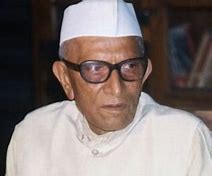Description
Morarji Ranchhodji Desai was an influential Indian politician and statesman who served as the Prime Minister of India. His career spanned several decades, during which he played a significant role in shaping India’s political landscape and policies.
Key Aspects of Morarji Desai’s Life and Career:
Early Life and Education:
- Morarji Desai was born on February 29, 1896, in Bhadeli, Gujarat, India.
- He completed his education in Mumbai, where he earned a degree in Arts and Law. He initially worked as a government employee before entering politics.
Early Political Career:
- Desai’s political career began in the early 1930s when he became involved in the Indian independence movement. He was associated with the Indian National Congress and actively participated in the struggle against British rule.
- He played a key role in organizing and leading various campaigns and movements, including the Quit India Movement in 1942.
Post-Independence Career:
- After India gained independence in 1947, Desai held various administrative and political positions in the Indian government. He served as the Chief Minister of Gujarat from 1960 to 1963.
- His tenure as Chief Minister was marked by efforts to improve the state’s economic and social infrastructure.
Role in National Politics:
- Desai was a prominent leader in the Indian National Congress and held several important ministerial positions, including Finance Minister and Home Minister.
- He was known for his advocacy of fiscal responsibility and economic reforms. As Finance Minister, he played a crucial role in implementing the Budget and economic policies.
Prime Ministership:
- Morarji Desai became the Prime Minister of India on March 24, 1977, leading the government formed by the Janata Party after the emergency period imposed by the then-Prime Minister Indira Gandhi.
- His tenure as Prime Minister was marked by efforts to restore democratic processes and civil liberties following the Emergency. He also worked on various socio-economic reforms and attempted to address issues related to corruption and governance.
- Desai’s tenure as Prime Minister ended on July 28, 1979, when he resigned due to internal party disagreements and political instability.
Post-Prime Ministerial Life:
- After resigning from the Prime Ministership, Desai retired from active politics. He remained a respected elder statesman and was involved in various social and political activities.
- He continued to be an influential figure in Indian politics and offered his insights and perspectives on various national issues.
Awards and Recognition:
- Desai was widely recognized for his contributions to Indian politics and governance. He was honored with various awards and accolades for his service to the nation.
Legacy:
- Morarji Desai is remembered for his role in shaping post-independence India and for his contributions to Indian politics. His tenure as Prime Minister is noted for efforts to restore democratic norms and address political and economic issues.
- He passed away on April 10, 1995, leaving behind a legacy of leadership and commitment to public service.
Morarji Desai’s career and contributions reflect his significant impact on Indian politics, particularly during a transformative period in the country’s history. His efforts in promoting democratic values and economic reforms continue to be remembered and studied in the context of India’s political development.
